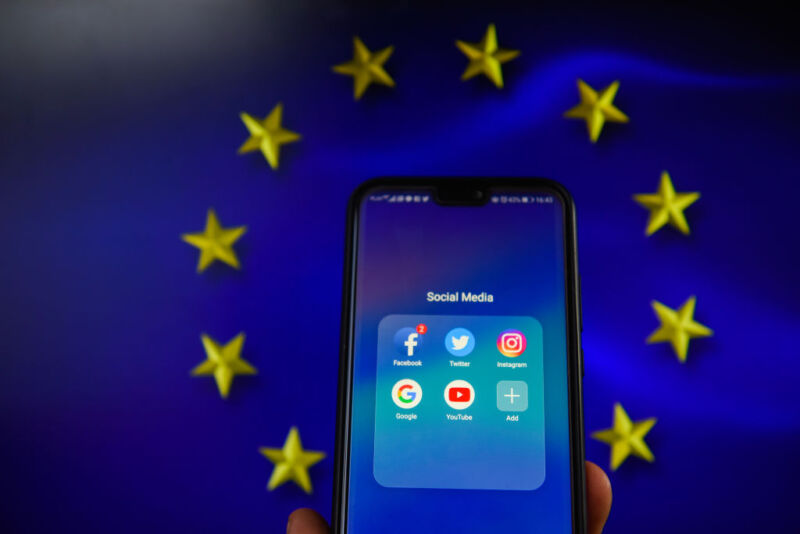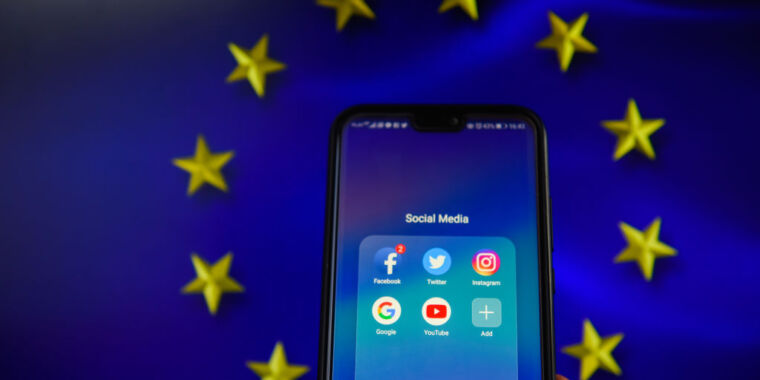
If the past five years of EU tech rules could take human form, they would embody Thierry Breton. The bombastic commissioner, with his sweep of white hair, has become the public face of Brussels’ irritation with American tech giants, touring Silicon Valley last summer to personally remind the industry of looming regulatory deadlines.
Combative and outspoken, Breton warned that Apple had spent too long “pushing” other companies out of the market. In a case against TikTok, he stressed: “Our children are not guinea pigs for social media.”

His confrontational attitude toward the CEOs themselves was visible in his posts on X. In the run-up to Musk’s interview with Donald Trump, Breton posted a vague but menacing letter to his account reminding Musk that there would be consequences if he used his platform to spread “harmful content.” Last year, he posted a photo with Mark Zuckerberg, proclaiming a new EU motto: “move fast to fix things”—a dig at Facebook’s infamous early slogan. And in a 2023 meeting with Google CEO Sundar Pichai, Breton reportedly got him to agree to an “AI pact” on the spot, before tweeting out the agreement, making it difficult for Pichai to back out.
However, Breton resigned this week in the reshuffle of top EU posts, which he said was the result of secret deals between European Commission President Ursula von der Leyen and French President Emmanuel Macron.
“I know for sure [the tech giants are] “Fortunately, Mr Breton will go because he understood that you have to hit shareholders' pockets when it comes to fines,” said Umberto Gambini, a former adviser to the European Parliament and now a partner at consultancy Forward Global.
Breton will effectively be replaced by Finnish politician Henna Virkkunen, from the centre-right EPP Group, who previously worked on the Digital Services Act.
“Her style will definitely be less brutal and maybe less visible at X than Breton,” Gambini says. “It could be an opportunity to restart and reboot the relationships.”
Little is known about Virkkunen’s stance on the role of Big Tech in the European economy. But her role has been tailored to fit von der Leyen’s priorities for her next five-year term. While Breton was commissioner for the internal market, Virkkunen will work with the same team but operate under the enhanced title of executive vice president for tech sovereignty, security and democracy, meaning she will report directly to von der Leyen.
The 27 commissioners who make up von der Leyen's new team, each assigned a different area of focus, still need to be approved by the European Parliament, a process that could take weeks.
“[Previously]“It was very, very clear that the commission was ambitious in terms of coming up with and proposing new legislation to counter all these different threats that they had seen, particularly those from big tech platforms,” said Mathias Vermeulen, director of public policy at Brussels-based consultancy AWO. “That is no longer a political priority, in the sense that legislation has been passed and now it needs to be enforced.”
Instead, Virkkunen’s title implies that the focus has shifted to the role of technology in European security and the bloc’s reliance on other countries for key technologies such as chips. “There is this realization that you now need someone who can really connect the dots between geopolitics, security policy, industrial policy and then the enforcement of all the digital laws,” he added. Earlier in September, a long-awaited report by economist and former Italian prime minister Mario Draghi warned that Europe risked becoming “vulnerable to coercion” on the global stage if it failed to boost growth. “We need to have more secure supply chains for key raw materials and technologies,” he said.
Breton isn’t the only prolific Big Tech adversary being replaced this week in a planned exit. Also gone is Margrethe Vestager, who after 10 years in the role had built a reputation as one of the world’s most powerful antitrust regulators. Last week, Vestager celebrated a victory in a case that forced Apple to pay $14.4 billion in back taxes to Ireland, a case that Apple CEO Tim Cook once described as “total political nonsense.”
Vestager, who vied with Breton for the reputation of leading digital enforcer (technically, she was his superior), is now being replaced by Spanish socialist Teresa Ribera, whose role will encompass both Europe’s competitiveness and green transitions. Her official title will be executive vice-president-designate for a clean, just and competitive transition, making it likely that Big Tech will drop down the priority list.[Ribera’s] “The most immediate political priority is really setting up this clean industry deal,” says Vermuelen.
Political priorities may be changing, but the madness of new regulations introduced over the past five years still needs to be enforced. There’s an ongoing legal battle over Google’s $1.7 billion antitrust fine. Apple, Google and Meta are all under investigation for violations of the Digital Markets Act. TikTok, Meta, AliExpress and Elon Musk’s X are also under investigation under the Digital Services Act. “It’s too early for Elon Musk to breathe a sigh of relief,” says J. Scott Marcus, a senior fellow at think tank Bruegel. He argues that Musk’s alleged practices at X likely breach the Digital Services Act (DSA) regardless of who the commissioner is.
“The tone of the confrontation may become a little more civilized, but the problems are unlikely to go away.”
This story originally appeared on wired.com.

